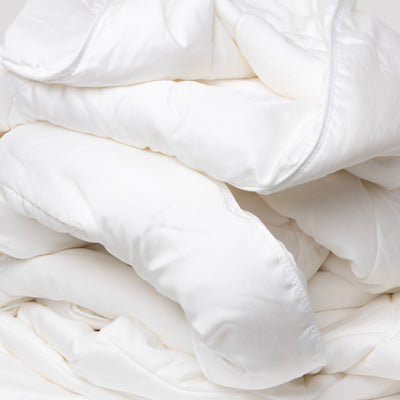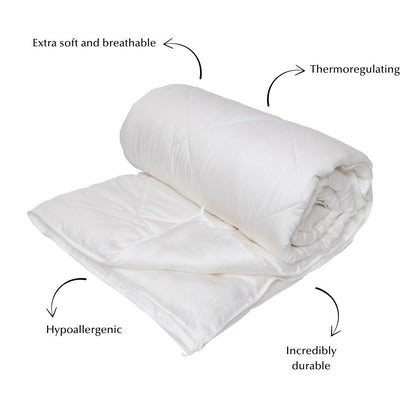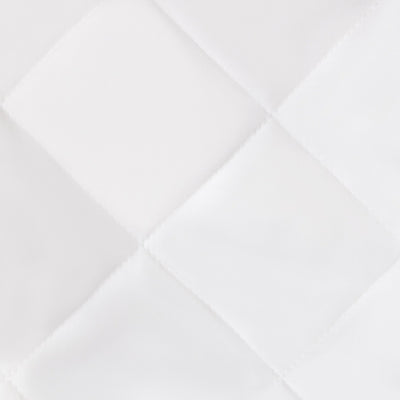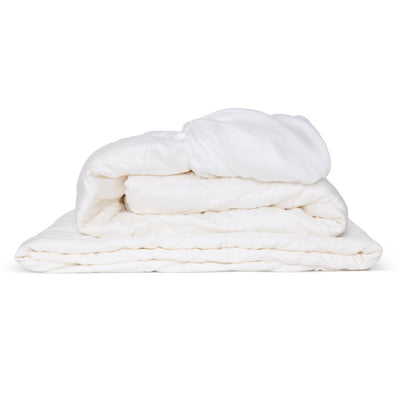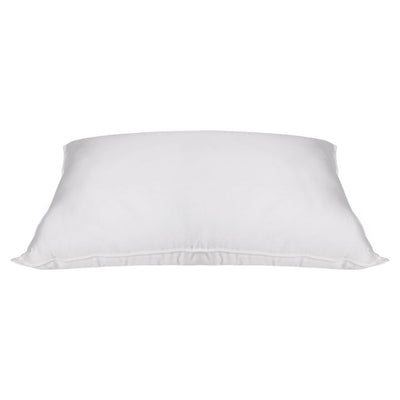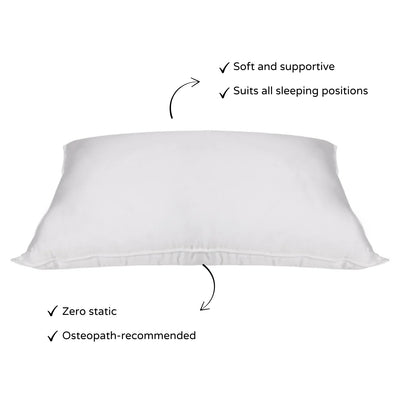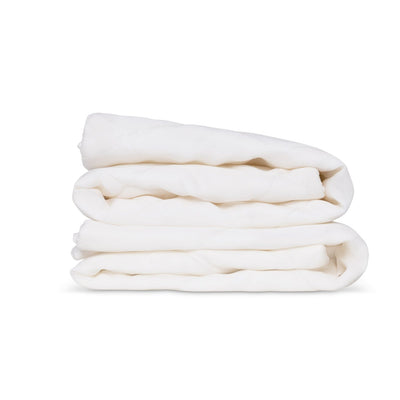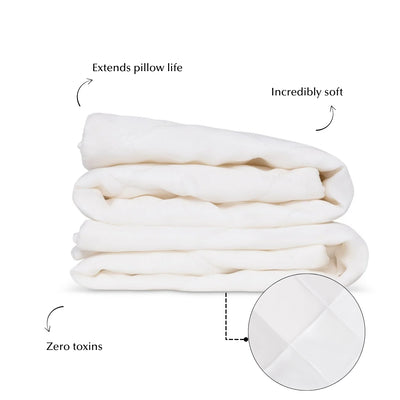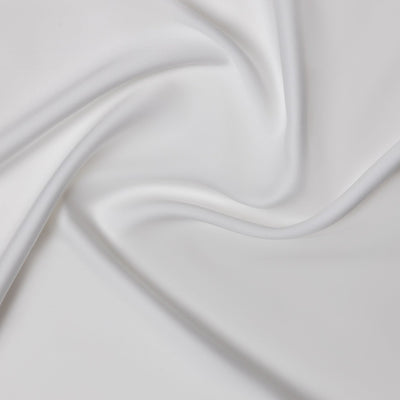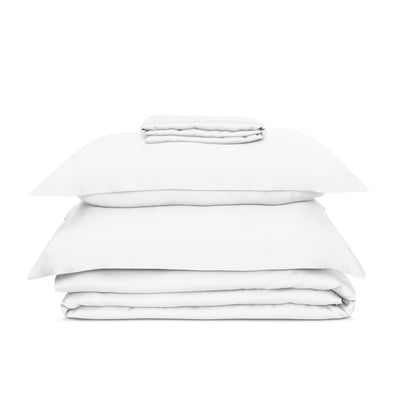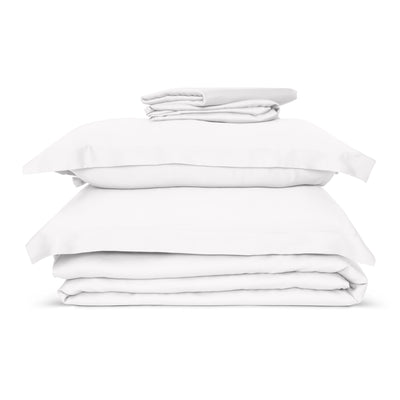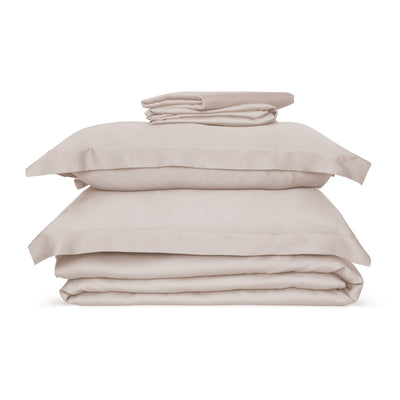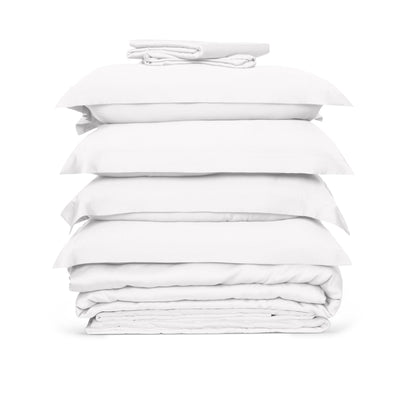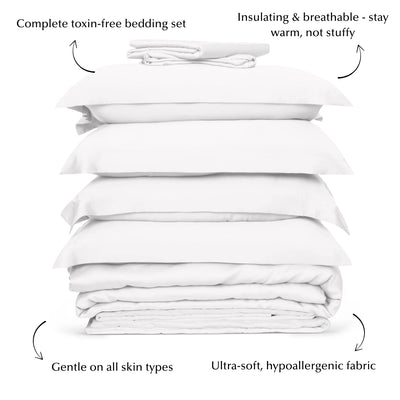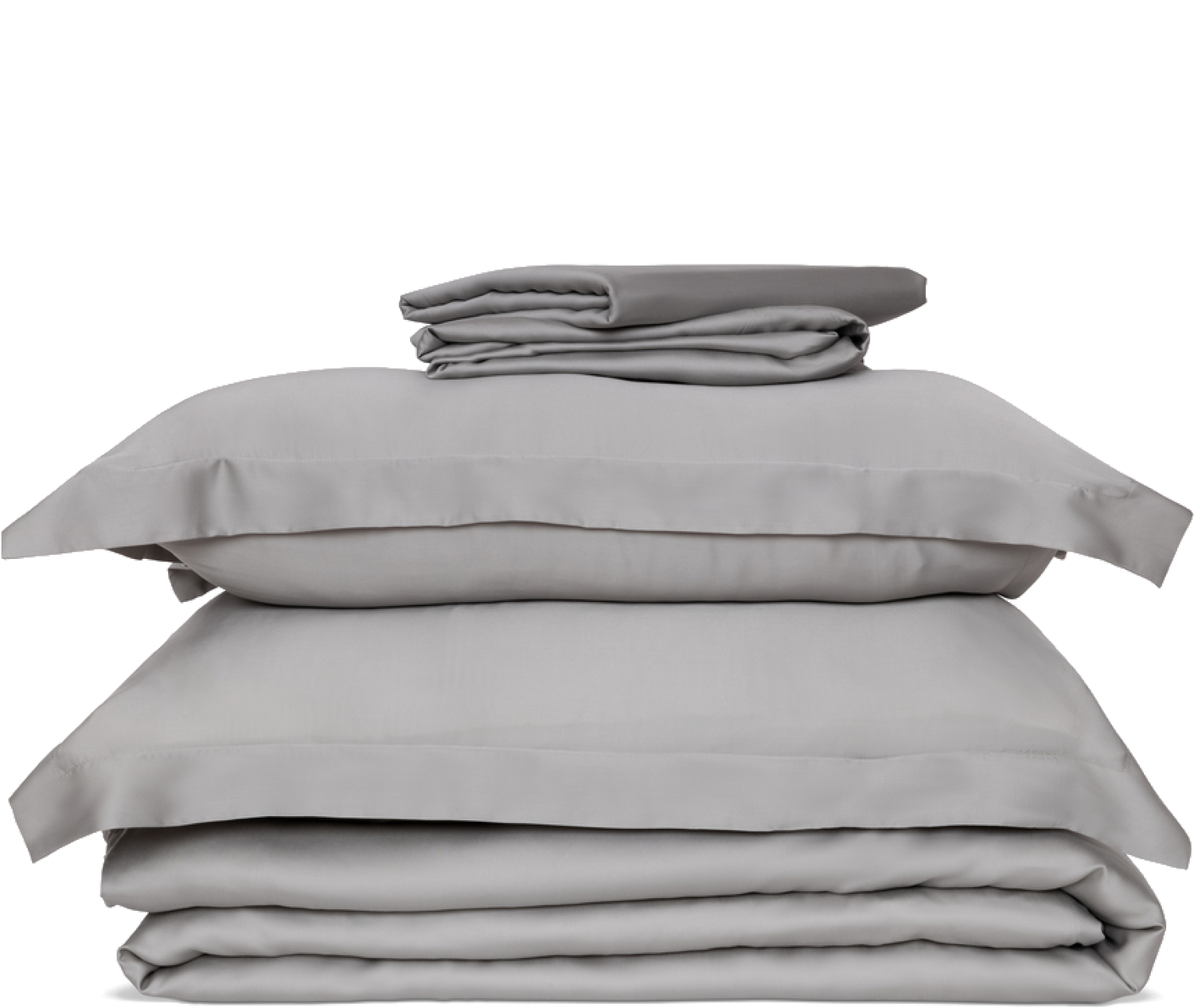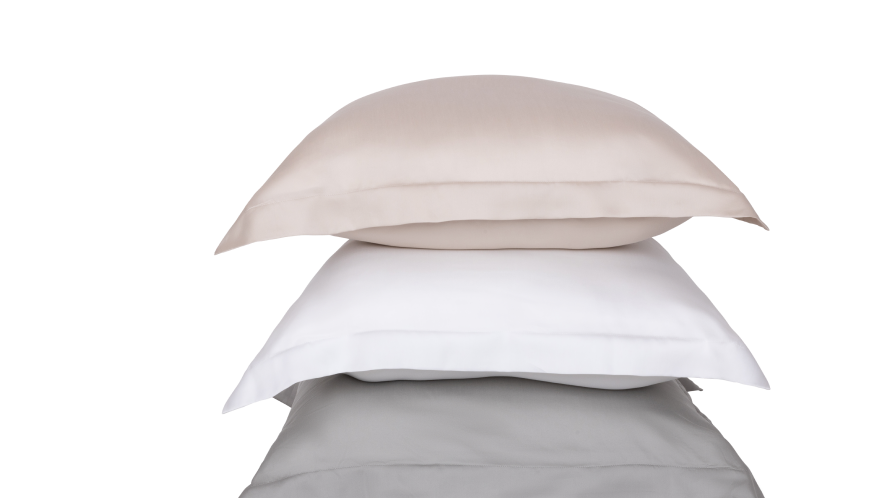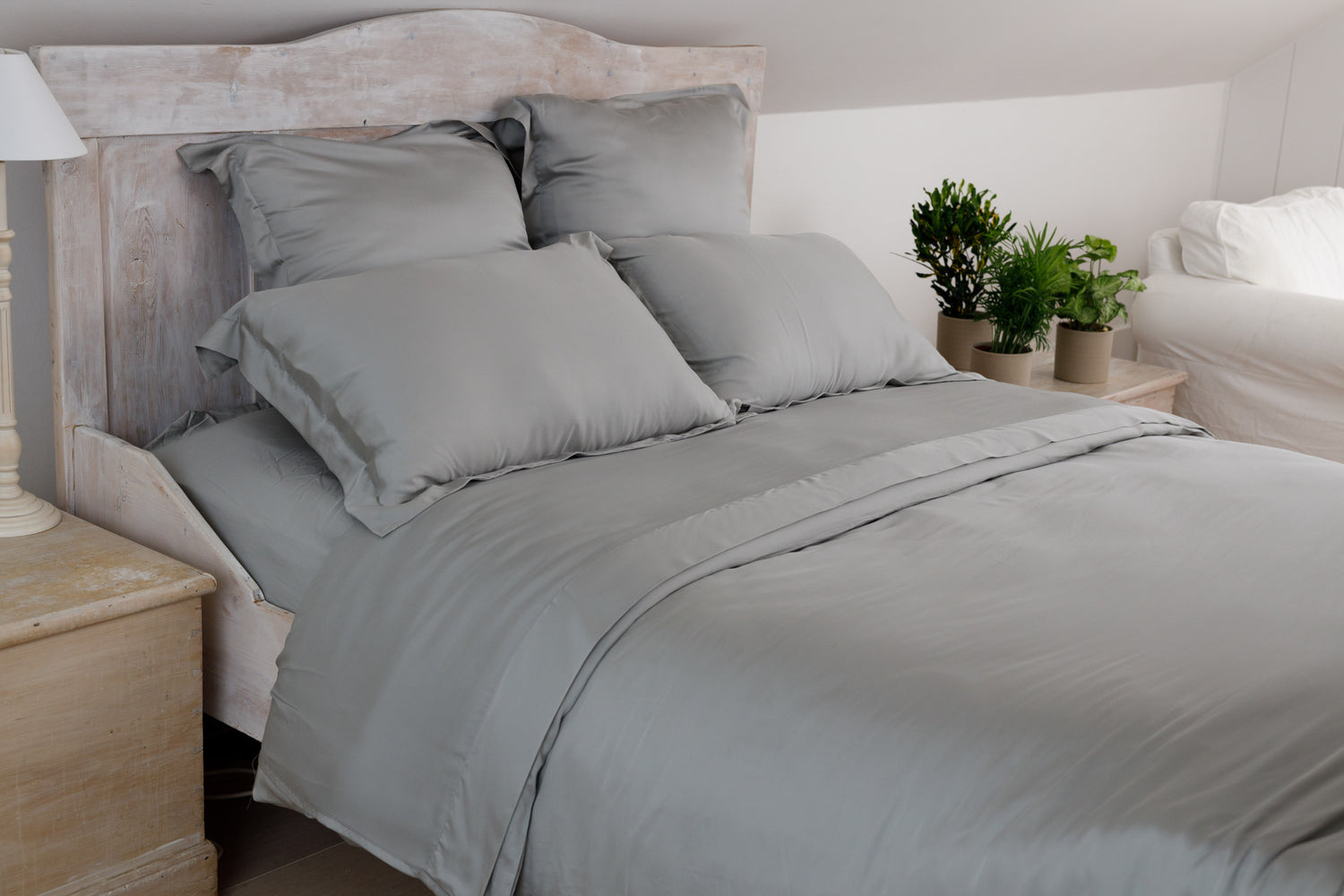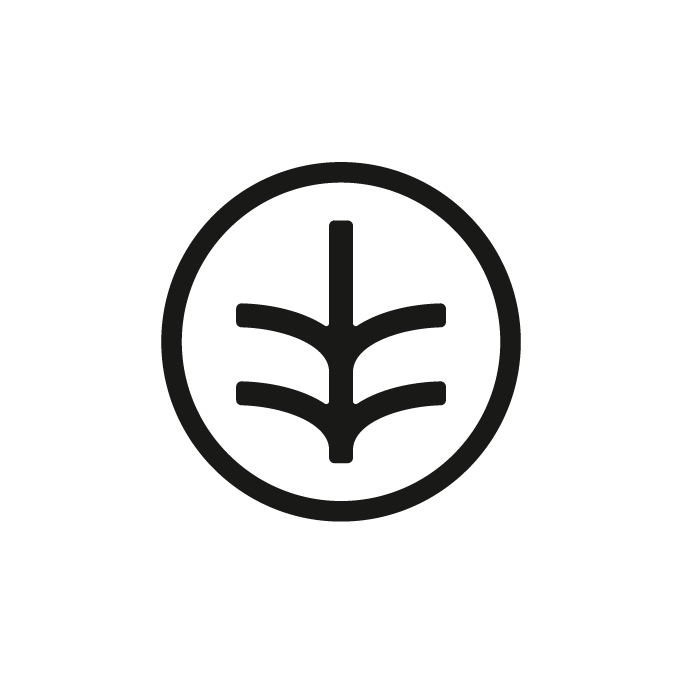Buying new bedding is an essential task, but that doesn’t mean it should feel like a chore. In fact, choosing new bed sheets can be an exciting time, giving you the chance to inject a little high-quality luxury into your space. After all, we spend around a third of our lives in bed, so why settle for second best?
But what factors should be front and centre of your mind when buying new bedding? To help you choose the perfect size, style, and fit, we’ve delved into the nine essential considerations you should make when browsing bed sheets.
1. Bed size
Perhaps the most important thing to remember when buying bed sheets is choosing a size that comfortably suits your mattress.
If you size down, it won’t fit, and you’ll spend half the time tucking it back in (and you’ll wake up sleeping on bare mattress with your sheet halfway down your bed) and if you size up you risk your bed looking scruffy and unmanageable. The main bed sizes include single, double, king, super king, and emperor, but if you have a three quarter or queen size mattress, make sure to buy accordingly.
And, even if you do double check your mattress to choose the right size bedding, there’s always the chance that it won’t fit anyway. For instance: Is your mattress taller than typical? Do you sleep with a mattress topper? Even if you think you know your mattress size, measure the length, depth, and width one more time, to help you find a well-fitted sheet.
2. Fitted sheet or flat sheet
Another important consideration to make when buying new bedding is whether you favour a fitted sheet or flat sheet. Each come with their own benefits, so it’s largely down to personal preference.
A fitted sheet is designed to fit snugly around your mattress to provide a secure fit that doesn’t move during the night. Often-elasticated corners offer practicality, while the close fit gives you a smooth sleeping surface.
A flat sheet, on the other hand, is simply a large sheet of fabric that spreads over your mattress and requires tucking in. This can give your bed the luxury look of a five-star hotel and make folding and storing a breeze.
If you’re interested in learning more about the differences between flat sheets and fitted sheets, read our handy guide.

3. Thread count
While thread count is of course an important consideration to make when buying new bed sheets, it’s not the be all and end all. In fact, there comes a point where a higher thread count doesn’t actually feel softer, and you just end up paying a premium price for a similar standard of product.
Generally speaking, bed sheets with a thread count of around 300 are considered high-quality and luxurious, which is exactly what you get when you choose our super-soft bedding.
When browsing new bedding, though, one thing you need to be aware of is the ‘ply’. Single ply means each thread is made of just one fibre, while 2-ply refers to two smaller fibres twisted together, and so on. A lot of bedding manufacturers try and hoodwink customers by including each fibre in the thread count, when the reality is a 2-ply 300 thread count sheet has a true thread count of 150.
You can find out more about which thread count is best for bed sheets.
4. Fabric
An essential consideration to make when choosing between the various types of bed sheets is the fabric, so take the time to research and review each bedding material before committing to a purchase. Examples of popular bed sheet materials include:
Cotton: high-quality cotton, such as authentic Egyptian cotton, is ultra-smooth, and typically gets softer after each wash. It’s also breathable and excellent at keeping you comfortable no matter the temperature.
Linen: a natural fibre, linen is both strong and durable, and is often used to produce high-quality bedding. It’s naturally breathable and hypoallergenic, and stylishly enhances a chic aesthetic.
Bamboo: bamboo is often seen as a luxury alternative to cotton, with softness, durability, and moisture-wicking coming naturally to this eco-friendly fibre.
Eucalyptus silk: considered by many to be the best material for bed sheets, eucalyptus silk is a super-smooth fabric that’s an ethical alternative to the real deal. It’s soft and cosy, earth-friendly, wrinkle-resistant, and long-lasting.
If you’re still unsure which to choose, read our useful guide that explains the softest bed sheet materials.

5. Weave
You may have heard or seen the word weave used in reference to bedding, but what does it actually mean?
Well, it essentially refers to the structure in which the fibres are interlaced, fwith different weaves providing varying results. The two most common types of bedding weave are sateen and percale:
Sateen: a sateen weave refers to a one under, three over construction, which results in a silky-smooth fabric.
Percale: a percale weave refers to a one under, one over construction, which results in a crisp and breathable fabric.
Choosing between different weaves is entirely down to personal preference, so do your research and find a style that suits you.
6. Cleaning & care
Keeping your bed sheets in a great condition is of vital importance, so it’s crucial you choose new bedding that’s straightforward to clean and care for.
For instance, while it’s considered a luxury fabric, traditional silk isn’t the most practical when it comes to putting a wash on, with most manufacturers recommending you either clean your sheets by hand or include them in a silk-only load.
In short, it’s important to follow the care guidance to improve your bedding’s durability - for instance, knowing how to wash bamboo sheets will help you enjoy quality comfort all year round.
7. A chemical-free process
Knowing where to buy bedding that hasn’t undergone harmful processes is essential, so, before making a bed sheet purchase, clarify if there were any chemicals that were used in production.
Unfortunately, you may find that some manufacturers load up on harmful chemicals to improve anti-wrinkling and softness, without explaining the negative long-term impact to both you and the planet.
While organic fabrics are typically chemical-free, this isn’t always the case and can’t be relied upon 100% of the time, so look out for official identifiers and specific information about the manufacturing process.
8. Certifications
Whenever you’re browsing for new bedding, make sure to keep an eye out for any certifications, as this gives you an indication of the quality, sustainability, and safety of the product.
For instance, all Ethical Bedding bed sheets are woven exclusively from Oeko-Tex certified earth-friendly fibres, which essentially means the fabric that goes into each flat and fitted sheet has been rigorously tested to exceptionally high standards to ensure it’s safe for both you and the planet.
If you’re interested in making luxury bedding choices that also benefit the environment, you might also want to keep an eye out for:
Carbon neutral processes and eco-friendly packaging: choose a manufacturer that considers their carbon footprint (and complements your own efforts to become carbon neutral), offsets emissions, and delivers your new bedding in eco-friendly and recyclable packaging.
Minimal impact on the environment: did you know that bed sheets made from eucalyptus silk use 95% less water and 30% less energy in production than equivalent sheets made from cotton? Choosing bed sheets that are manufactured from unproblematic fibres will help to reduce your own impact on the planet.
Sustainable commitments: when buying new bedding, aim to opt for brands who are actively making long-term commitments to sustainable and earth-friendly practices.

9. Returns policy
Finally, it might sound straightforward, but before committing to a purchase, check whether the bedding you’re about to buy has a reasonable refund policy.
After all, there are a number of reasons you might want to return your bed sheets; whether they’re not the right fit for your mattress, you’re not quite as keen on them as you first thought, or you’ve noticed a slight defect, knowing you can simply send them back to the supplier will give you peace of mind – especially if you’re splashing out on a luxury set.
Just be sure to read the terms before returning your bed sheets, as the manufacturer will likely stipulate that they must be unused and suitable for resale to be eligible for a full refund.
While buying new bedding can be extremely exciting, it’s not always easy knowing what to look out for, so hopefully you now feel a little more confident choosing the perfect fit for your space. With that in mind, discover our bestselling luxury bedding, or for even more useful insight from our sleep experts, head on over to the Ethical Bedding blog.

